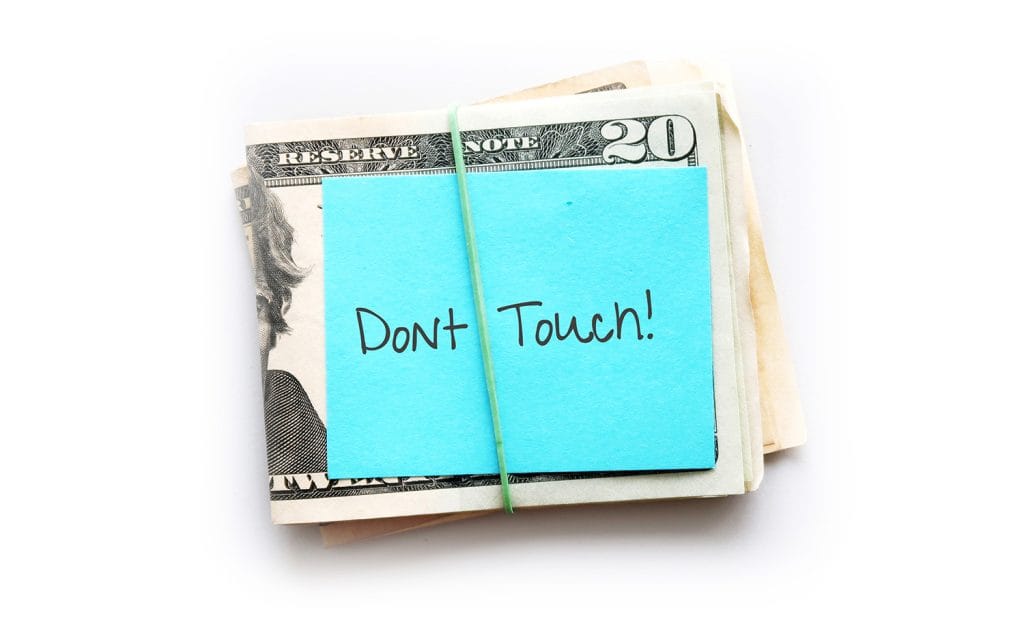
Expect the Unexpected: Why You Need an Emergency Fund
Having money on hand to cover unexpected bills is good for your financial health. Learn about starting an emergency fund.
As technology advances and mobile devices are used more than ever, new avenues of opportunity open for cybercriminals to exploit cybersecurity weaknesses for financial gain – and people like you are the targets.
How Scammers Operate
Not every technological advancement has enhanced cybersecurity. Capabilities like caller ID spoofing, which allows scammers to change the phone number they appear to be calling from, make it easier to create believable facades, personas, and scenarios.
Imagine your phone rings, and the caller ID displays the name and number of your credit card issuer. When you answer, a man claims to be from the issuer and states your account has been frozen due to your failure to pay. He urges you to verify your full name, address, and payment information over the phone so the payment can be processed, warning you that not doing so will lead to hefty fines.
Sensing something suspicious, you call the customer service number on the back of your credit card. The representative confirms that you have no account alerts or payment concerns and that no representative has called you, then connects you with their fraud department to report the incident.
Though the call appeared to be from the actual credit card company, it was really from a random criminal trying to get your personal and financial information. Had you given in to their request, it could have been disastrous. Sensitive details like your name, address, Social Security number, and birth date can be used to steal your identity and open false accounts in your name. Financial account numbers, card numbers, and login information can give scammers direct access to your money. Other times, cybercriminals may trick you into sending wire transfers or gift cards, which are nearly impossible to trace or recoup your money from.
But how could you have known the call was a fraud attempt when the caller ID displayed the company’s real phone number? With technology making it so easy for scammers to fool people, how can you stay safe?
Tactics to Watch
While no cybersecurity defense is 100% secure, following best practices and staying aware can significantly reduce your risk of being scammed. Cybercriminals can emulate real emails, websites, digital ads, social media pages, SMS messages, and phone calls so closely it’s not always immediately obvious when facing fraud.
Fortunately, even in these cases, scammers leverage the same tactics to get what they want – which means learning to identify them can be a basic and crucial aspect of cybersecurity. These tactics may include:
Remember:Virtually no legitimate organization will contact you and demand that you verify or provide sensitive information. Unsolicited attempts to collect this information from you are likely fraud.
Protect Your Accounts and Devices
Beyond recognizing common signs of scams, you can adopt cybersecurity best practices in your personal and professional life to protect against cybercrime.
Don’t Fall for Common Scams
Scammers may use false threats or grand promises – like freezing your account or paying you thousands for a simple job – to lure you in. Here’s how to avoid getting hooked:
Financial institutions rarely ask you to share sensitive information unexpectedly. However, it should be noted that legitimate institutions may contact you to verify your identity if there is a case of suspected fraudulent activity. In these cases, be sure to independently verify the identity of a caller or texter before sharing information.
If you realize you’ve fallen for fraud, file a report with your financial institution, credit card provider, local authorities, the Internet Crime Complaint Center, and potentially the Federal Trade Commission.

Having money on hand to cover unexpected bills is good for your financial health. Learn about starting an emergency fund.

Learn seven ways you can raise your credit score and improve creditworthiness.

Learn the essential basics of budgeting, plus practical tips designed to foster better money habits.
Copied to clipboard!